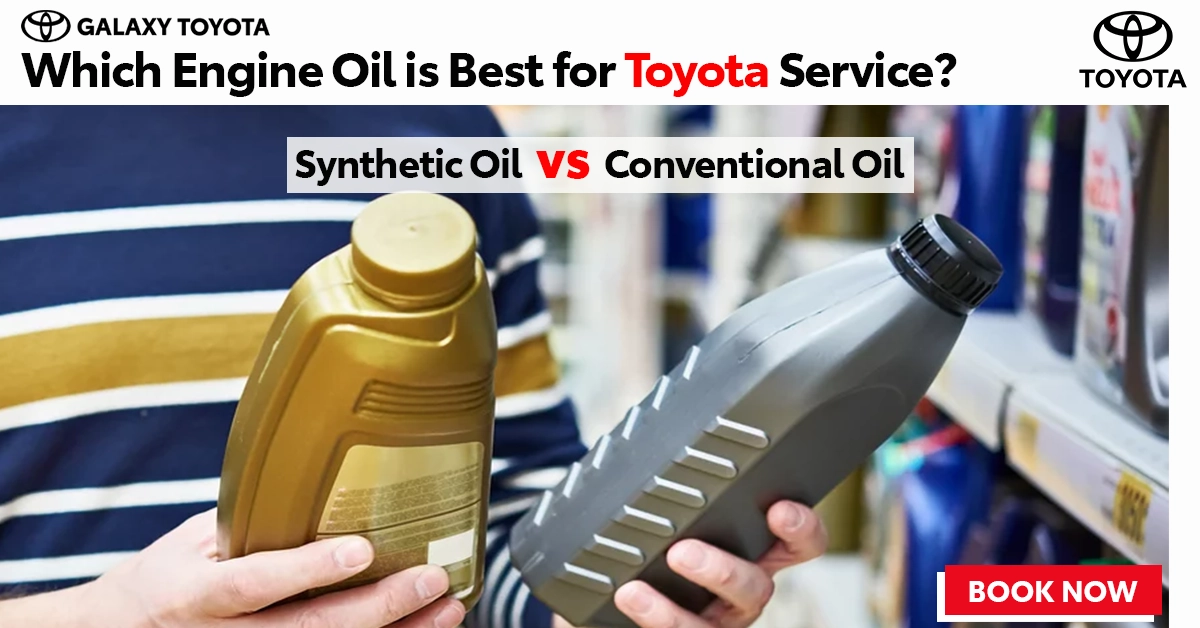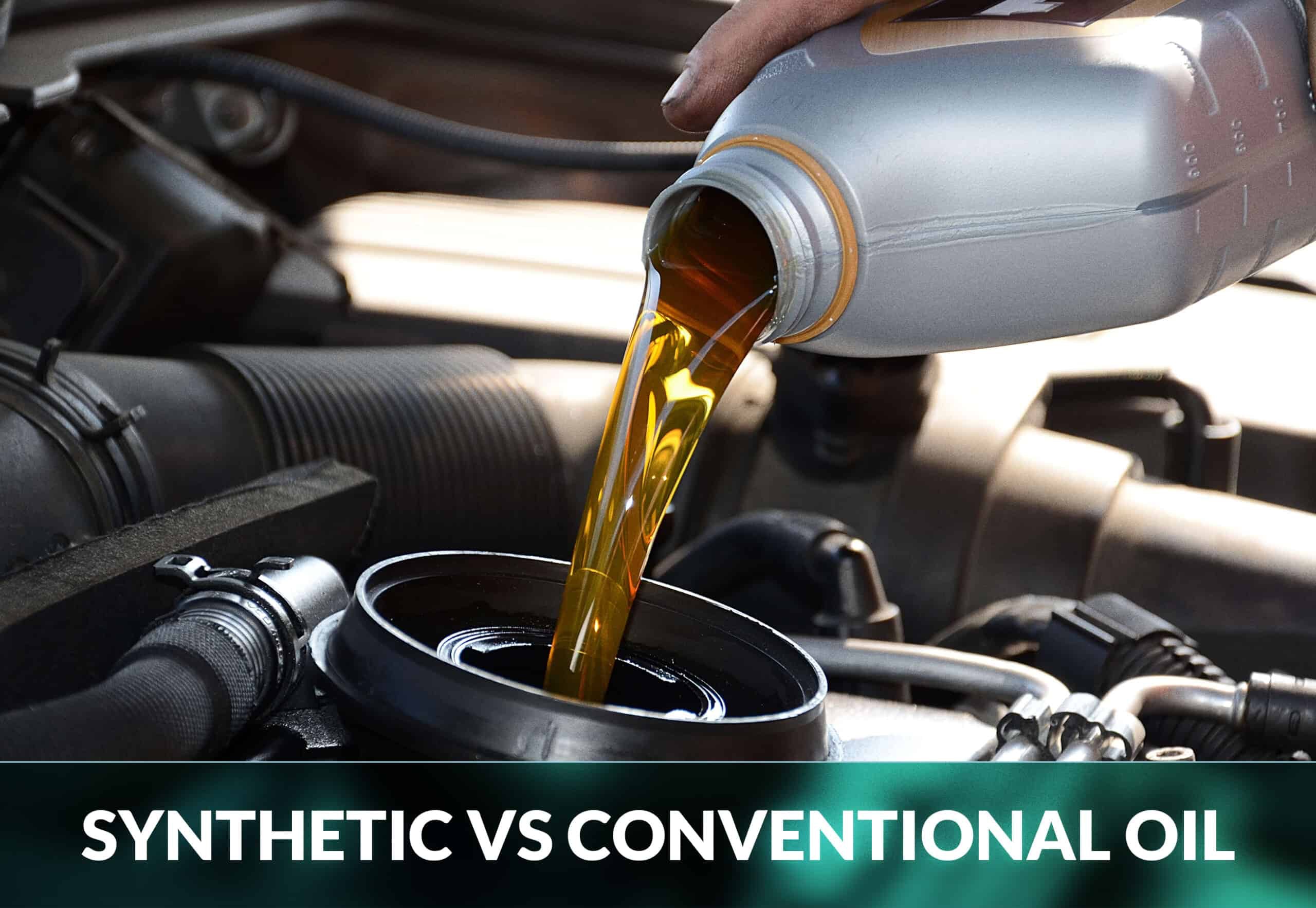When it comes to getting the best performance out of your Toyota service, one important factor to consider is the type of oil you use.
Engine oil lubricates, cools, and cleans internal engine components, reducing friction, preventing wear, and ensuring optimal performance and longevity.
Synthetic oil and conventional oil are the most commonly used engine oils. Find below more about them and which one is the best for your Toyota car.
What is Synthetic Oil?
Synthetic oil is a lubricant that is artificially created in a laboratory. It is designed to provide better performance and protection for your engine compared to conventional oil.
Synthetic oil is made by chemically modifying petroleum molecules or creating them from other raw materials. This process allows for more precise control over the characteristics and properties of the oil.
One of the key advantages of synthetic oil is its ability to withstand extreme temperatures. Its high tolerance for heat means it remains stable and effective even in hot conditions.
However, synthetic oil is generally more expensive than conventional oil. But many car owners prefer it due to its various advantages.
What is Conventional Oil?
Conventional oil, also known as mineral oil, is the traditional type of oil that has been used in engines for many years. It is derived from crude oil through a refining process that removes impurities and adds additives to enhance its performance.
It is generally less stable at high temperatures and more prone to oxidation. This means that conventional oil may break down and lose its effectiveness more quickly under extreme heat, leading to increased engine wear and reduced performance.
However, it is widely available and generally less expensive than synthetic oil. This makes it a more affordable choice for regular oil changes and maintenance.
Key Differences Between Synthetic Oil and Conventional Oil
Find below the difference between synthetic and conventional oil to help you make an informed decision regarding your Toyota service.
Molecular Structure
Synthetic oil has a more uniform and consistent molecular structure compared to conventional oil. This allows it to flow more smoothly and provides better lubrication for engine components.
Heat Tolerance
Synthetic oil has a higher tolerance for extreme temperatures, making it more suitable for high-performance engines or harsh operating conditions. Conventional oil, on the other hand, may break down and lose its effectiveness at high temperatures.
Resistance to Oxidation
Synthetic oil has better resistance to oxidation, which helps prevent the formation of sludge and deposits in the engine. Conventional oil is more prone to oxidation, leading to potential engine damage and reduced performance.
Longevity
Synthetic oil typically lasts longer than conventional oil. Its superior properties allow it to maintain its effectiveness for a longer period of time, reducing the need for frequent oil changes.
Price
Synthetic oil is generally more expensive than conventional oil. The higher cost is due to the complex manufacturing process and the use of premium additives.
While synthetic oil offers several advantages over conventional oil, it’s important to consider your specific driving habits, engine type, and manufacturer recommendations when making a decision.
Factors to Consider For Choosing Synthetic Oil or Conventional Oil For Your Toyota Service
Although your Toyota service center will recommend the right type of engine oil, you must also consider the following factors:
Manufacturer Recommendations
It’s always a good idea to follow the manufacturer’s recommendations for oil type and viscosity. Toyota may have specific guidelines for your vehicle, which can help you make an informed decision.
Driving Conditions
Consider your driving habits and the conditions in which you typically drive. If you frequently drive in extreme temperatures or put your engine under heavy load, synthetic oil may be a better choice.
However, if you primarily drive in mild conditions and have an older or less demanding engine, conventional oil may suffice.Budget
Synthetic oil is generally more expensive than conventional oil. Consider your budget and the cost implications of using synthetic oil for your Toyota car service.
While synthetic oil may offer long-term cost savings, it’s important to weigh the upfront cost against your budget.Vehicle Age and Condition
The age and condition of your vehicle can also play a role in your oil choice. Older engines with higher mileage may benefit from the enhanced protection and lubrication properties of synthetic oil.
However, if you have a newer vehicle with low mileage, conventional oil may be sufficient.
By considering these factors, you can make an informed decision that aligns with your specific needs and the requirements of your Toyota service.
Galaxy Toyota – Authorized Toyota Service Center
Galaxy Toyota is an authorized Toyota service center that offers a wide range of Toyota repair and maintenance services. The expert technicians use the latest technology and equipment to diagnose and repair Toyota car issues.
Book Toyota service at Galaxy Toyota service center near me for the best car care!






